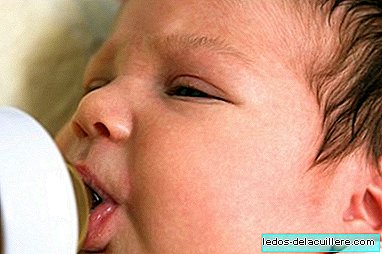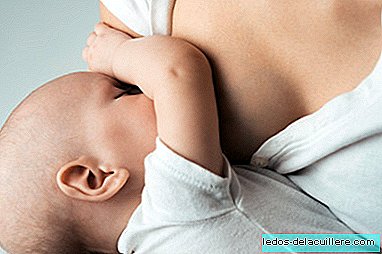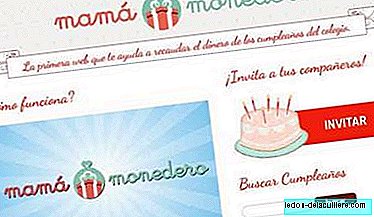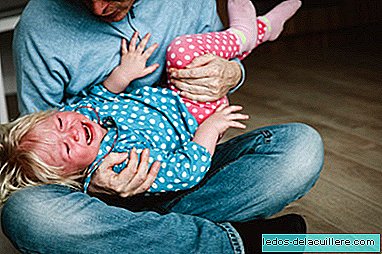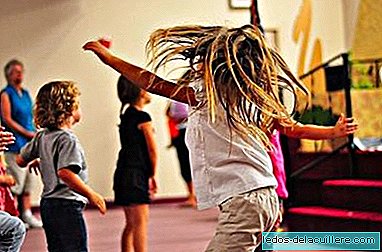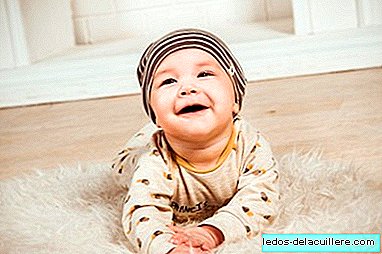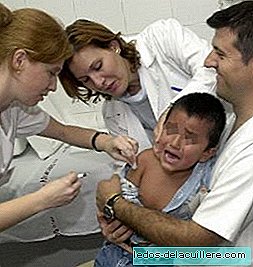
In the immediately previous post I have explained what are the measures to decrease pain derived from the administration of vaccines.
Now, placing you in my personal experience today, I tell you by way of dialogue my intervention in class:
- I have read studies in which they say that if the children are in the arms of their parents or being breastfed if they are children who are breastfeeding they have less pain (she had not explained it in the class and I would prick the children, if possible , in this way).
- Yes Yes of course. It is true, they are appropriate measures. Anyway it is believed that they do not hurt so much either, and the truth is that children live many painful experiences in childhood. They fall, they hit, they cry, etc.
- Of course, but if at least this can be avoided ...
- Of course, but children during life will have many painful experiences, we cannot overprotect them so much.
- Now, not always, but if you can avoid ... And here voices have been appearing in favor of the Prof... Oops! I got lost, I thought. Maybe these people take their teeth out without anesthesia, maybe they leave the house door open because total, nowadays they steal your phone, farm and even the baker who charges you almost 1 euro for the bar when you're worth half the money at the Mercadona, Why close it if you are going to be robbed many times in life? Perhaps they think that hurting yourself with something makes you a more whole person, stronger or with greater personality or self-esteem.
No, rather it seems to me that the nursing profession, the one that struggles to differentiate itself from the healthcare world by showing high levels of empathy has less empathy than an old shoe.
For me, an adult with the ability to reason, I don't mind getting a vaccine, I'm not afraid and I voluntarily agree if I need it. There are children who cry because they feel real fear. To believe that they live it just like us is not to put ourselves in their place and it is not to try to understand what they feel.
Let's see for example the child in the photo above. I try to put myself in his place imagining what he feels. As an adult I try to find an experience that would make me feel like him.
I got it! If someone came with a functioning electric saw willing to cut my arm I think they would put on the same face as this child. Well, putting myself in that situation:
- Please, don't cut my arm!
- No, Armando, you have to cut it, all your teammates have already cut it and you also have to cut it.
- Well, jope (not to mention ...), at least I fell asleep!
A shame, because both the Prof as the students who agreed with her are nurses who work in pediatrics and who they will prick many children in their life.
Then they are surprised that children enter crying like muffins (or kicking like beasts) when they enter the office. And there is still one who has the great idea of telling the child: "If you don't stop crying your parents will go outside until you calm down", wonderful way to play with the fear of a child to achieve a purpose. Anyway…
About the treatments, in case anyone is interested in my opinion, I vote for the use of topical anesthetic cream (EMLA) in young children and even in older children, say up to 6 years if they are afraid of administration ( there are no vaccines again until age 12). About oral medication I think that the less children take, the better, that's why I prefer the cream, but come on, that would not be a crime either.
In addition to the cream or analgesia I would always try measures that calm or distract you. Have them in arms, rock them, pat them in another area of the body and in the elderly, play with them as I indicated in the other post (blowing, music, etc.).
There are nurses who do not want to puncture the child in the arms of their mother, arguing that it is better to puncture him on the stretcher (even saying that there are studies that say that the stretcher is better because bla bla bla). The reason is usually 'I don't like it', I can say it louder, but not clearer.
Yes, in life they are going to take many blows, they will hurt themselves many times and they will cry when something hurts or they feel fear but I cannot accept, out of respect for the children, who are as person as meLet them suffer or feel pain if we can avoid it.




